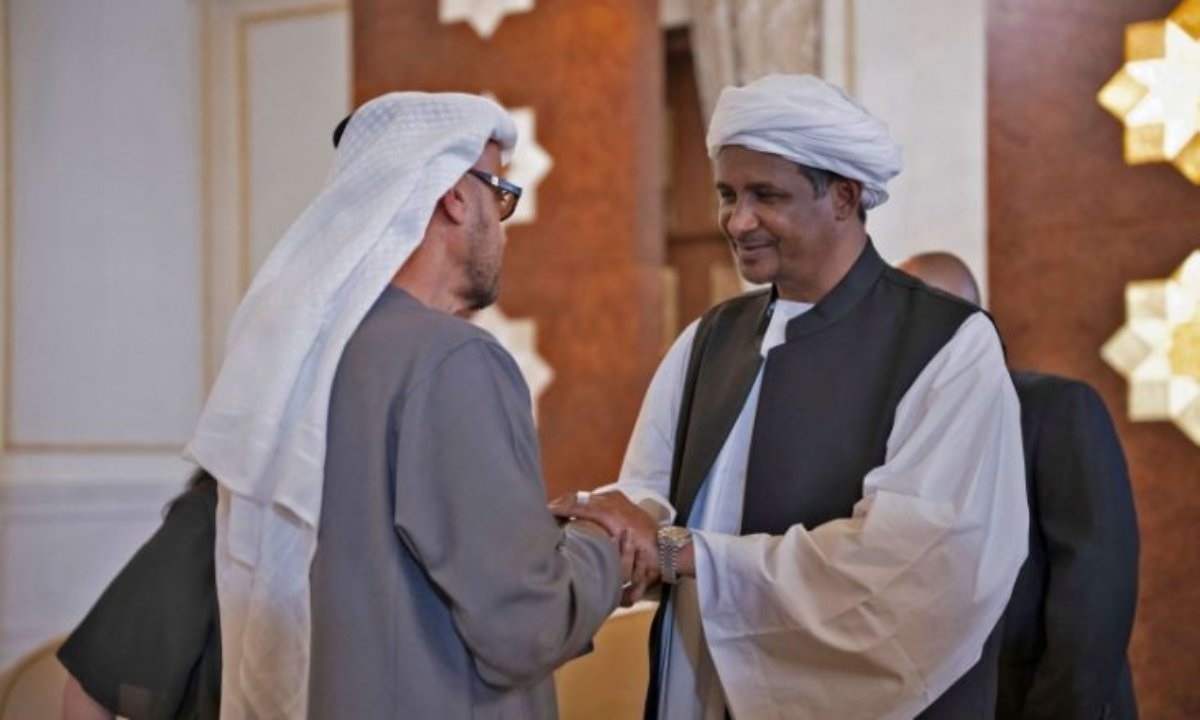Watan-The opposition website ‘Emirates Leaks’ revealed the details of what it called a ‘malicious plan’ by the Emirati President, Mohammed bin Zayed Al Nahyan, to retaliate against Sudan after official statements from Khartoum officials exposed Abu Dhabi’s suspicious role.
The website quoted Arab diplomatic sources as saying that Mohammed bin Zayed sought to inflame discord in Sudan and openly solidify the country’s division by issuing intensive instructions to take more cunning steps in the region.
The Emirati president deployed thousands of mercenaries from Central Africa, Chad, and Mali to support the Rapid Support Forces militias who supported the war criminal Khalifa Haftar in Libya, also backed by Emirati support.
Diplomats, speaking to the ‘Emirates Leaks’ website, described Abu Dhabi as becoming the preferred enforcer for those with suspicious agendas in the region.

The Emirati reliance on mercenaries
The UAE has consistently employed intervention in other countries through mercenaries, acting in ways that do not respect any laws, as seen in Yemen, Libya, Sudan, and others, describing them as ‘gangs intervening through the worst means and the dirtiest hands, with the cheapest mercenaries,’ according to the report.
Sudan had requested 15 Emirati diplomats to leave the country within 48 hours, following the acting Charge d’Affaires of the Abu Dhabi Embassy, Badria Al-Shuhi. Meanwhile, the UAE had expelled three Sudanese diplomats.
Abu Dhabi informed the Sudanese military attaché and his deputy, along with the cultural attaché, that they were persona non grata and demanded they leave the country within 48 hours, following sharp criticisms from Sudanese Army Deputy Chief of Staff Yasser Al-Atta of the Emirati government.
Al-Atta’s criticism accused Abu Dhabi of supporting the Rapid Support Forces in the first public allegation against the Gulf state of involvement in the Sudanese war to achieve economic and strategic goals, including seeking a foothold in East Africa and the Horn of Africa.
The other dimension of Emirati intervention
According to Arab diplomatic sources, the other dimension of Abu Dhabi’s intervention does not mean that the UAE is a functional state. Instead, its agenda aligns with the dirty path to achieve its economic interests, even at the expense of stirring conflicts and destabilizing countries for its ambitions.
With the aim of unilaterally asserting dominance over the busy shipping lanes heading to the Red Sea, Abu Dhabi also sought to seize control of the ports of Aden, Somalia, and Djibouti, offering little in return to these countries.
Their ignoble goal was to obstruct the mentioned ports to activate Dubai’s ports. To achieve this, they supported the division of Somalia and seized the port of Berbera, just as they did in Yemen by supporting separatist mercenaries and obstructing Aden.
Four projects striking blows to Mohammed bin Zayed’s ambitions were discussed by diplomats
- Developing Singapore to be a center for economy and business.
- Developing Kigali in Rwanda or Ethiopia to be a technology center.
- Reviving the Silk Road project and connecting Europe with China.
- The Gwadar Port in Pakistan, a Chinese project that threatens the existence of the Jebel Ali Port in Dubai.
According to the “Emirates Leaks” report, this prompted the UAE to frantically and hysterically seek its threatened future, facing stronger competitors to its right and left. Hence, it resorted to manufacturing mercenaries and militias affiliated with it on international routes to threaten competitors and create an influential conflict zone for them, while retaining control keys to serve its economy.
طمعا في ذهب #السودانيين.. الإمارات تمول #إبادة_جماعية في #السودان #محمد_الضيف #غزه_تنتصر #الامارات_تقتل_السودانين #السودان_يستغيث #جنوب_لبنان #ايران #الحوثي #غزه_تستغيث #السودان_خارج_التغطيه_الاعلاميه #تركيا #القسام #حرب_غزة #فلسطين_الان #لواء_جولاني #غولاني pic.twitter.com/ZBE5QOgvyr
— وطن. يغرد خارج السرب (@watanserb_news) December 22, 2023
